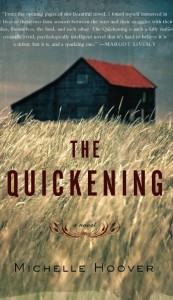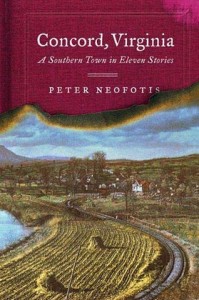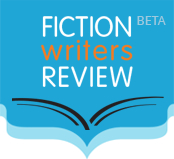Here’s a roundup of the latest features FWR was pleased to bring you over the past two weeks:
- T.L. Crum reviews Michelle Hoover’s debut novel The Quickening:
The Quickening follows the journeys of two Iowa families trying to build their lives amid the hardships of the Great Depression. Like Hoover, I’m a descendent of Iowa farmers, so I was interested in this story, curious to learn what my ancestors might have encountered as they built their farms in early 1900s, when so much was at stake and so little could be counted on. While there are subtle references to what is happening in the time period, Hoover’s focus is on the insular, everyday life of the American farmer—raising animals, rearing children, making sure the ground is plowed and the mouths are fed.
- Dana Staves reviews Peter Neofotis’s debut collection Concord, Virginia, reflecting:
On his website, Neofotis is pictured on stage with an old fashioned typewriter in his lap, wearing a beige suit that brings to mind costumes from The Great Gatsby. And when one reads the stories in Concord, Virginia, one cannot help imagining how the stories must sound out loud, told in character, the narrator made tangible. The tone and voice behind many of the stories is one of a storyteller rather than a writer.
- And finally, Mary Stuart Atwell interviews Andrew Porter, author of the collection The Theory of Light and Matter. In the interview, Porter discusses the development of several stories in the collection, as well as influences on his writing and style:
I suppose on some level my process is very similar to a filmmaker’s process. I don’t write my stories in a linear way, for example. I tend to just generate a lot of raw content, and then go back later and piece it all together, much like a filmmaker goes back and edits a film. And when I think back on my early interest in film and becoming a filmmaker, I remember spending a lot of time thinking about scenes, scenes that weren’t necessarily connected to larger stories. I remember thinking about what type of lighting I might use, what type of music I might use, and so forth, even when I didn’t know how the scene itself might connect to something larger, and this is very similar to the way I approach fiction writing. I just start with small moments and build from there.



Want to make sure you don’t miss any features? As always, you can subscribe to FWR‘s RSS feed and get notified about all our reviews, essays, and interviews.


